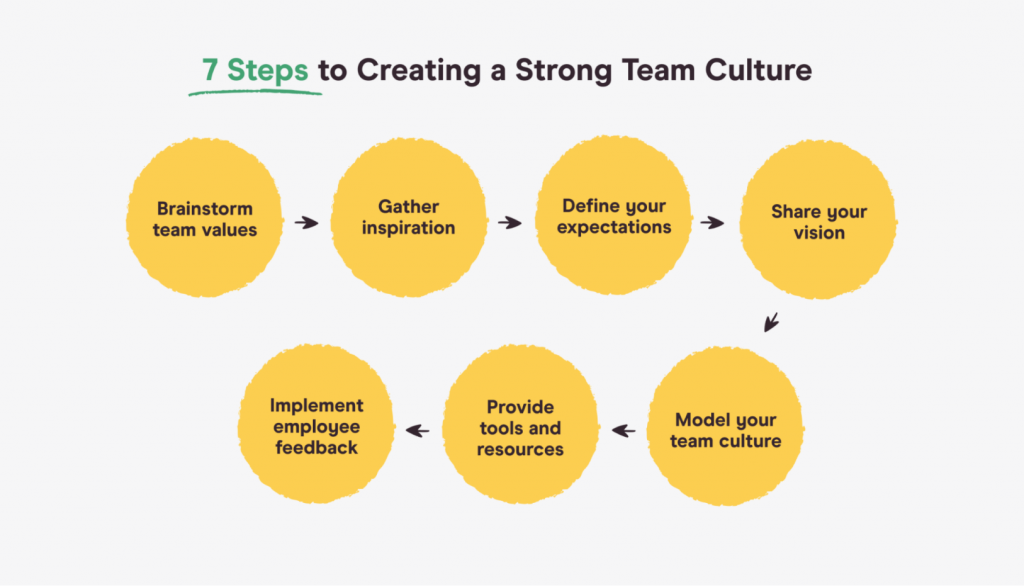Launching a new business is never easy, but it can feel especially difficult if you’ve never done it before. First-time entrepreneurs will naturally be excited about building a business from scratch, just as they are a little bit overwhelmed by all the legal, financial, and logistical challenges they must contend with.
And while there is no blueprint or recipe for entrepreneurial success, there are a few strategis guidelines that can point any startup in the right direction. Here are a few strategies every entrepreneur should have on their radar.
Essential Strategies for Startups to Follow
1) Define a clear sense of vision.
Having a clear statement of vision, or mission, can serve as a guiding light for your business, helping to ensure that every decision you and your team members make is aligned with your big-picture goals.
For example, your mission might pertain to sustainability. It might pertain to innovation, or to excellent customer service. Just think about the aspirations that led you to start your business, the values you hope to guide you, and the distinctives that will set your startup apart. If you’re launching an ecommerce digital marketing agency, focusing on innovative strategies for your clients can be an excellent mission.
2) Choose the right legal structure.
The legal structure you choose for your startup can impact everything from your legal liability to your relationship with the IRS. And while there is no one-size-fits-all solution here, a majority of startups benefit from the LLC format.
An LLC, or Limited Liability Company, helps shield your personal wealth from litigation and creditors, while also being much less regulation-heavy than a Corporation. To find out more about how to register an LLC in your area, check into the best LLC services active within your state.
3) Know your market.
By knowing your market inside and out, you’ll be better positioned to identify opportunities, to understand the needs of your customers, and to retain an edge over your competition.

source: ideascale
Conduct rigorous market research including customer surveys, competitor analysis, and industry trends. Also make sure you take advantage of digital tools, like SEMRush, Google Trends or Google Trends alternative, to better understand emerging trends within your market.
This is the first step in any go-to-market strategy, often supported by fractional marketing services when startups can’t yet hire senior staff full-time in-house.
4) Create an Operating Agreement.
An Operating Agreement is a type of legal document. And while you’re not legally required to have one, doing so can help you avoid potential conflicts or friction points down the road.
What is an Operating Agreement? Simply put, it’s like a charter for your business, outlining things like:
- How you and your business partners will allocate profits.
- How you and your business partners will split day-to-day responsibilities.
- How you will handle the departure of a partner.
- How you will handle a new partner who wishes to come on board.
You really have no idea how your business (or your professional relationships) will grow and evolve, so an Operating Agreement can be a valuable form of protection for everyone involved.
5) Make sure you have a business plan.
A business plan is not just an idea or a goal. It’s a well-organized document that highlights some key aspects about how you plan to succeed with your startup. A business plan might include financial goals, as well as some specific means for achieving those goals.
As you develop your business plan, be sure you include sections on your value proposition, target market, competitive analysis, marketing strategy, and even some initial financial forecasts.
6) Have a strong brand identity.
Having a clearly-defined brand helps your business stand out in a crowded market, to distinguish itself from your competitors, and ultimately to build positive associations from your customers.
You can begin brand-building by brainstorming some of the distinctions that set your business apart from the competition, then come up with some verbiage you want to employ to convey those distinctives.

Don’t forget the importance of using the verbiage consistently in all your marketing materials, including your website. Also be consistent with your colors, fonts, logos, and other visual signifiers.
7) Focus on customer experience.
Exceptional customer service can lead to repeat business, positive reviews, and referrals. This means delivering a high-quality product, but it also means providing plenty of support on the back-end. And, it means ensuring the process of buying and using the product is as frictionless as possible.
Make sure you regularly review all the steps in your consumer journey, paying attention to user reviews and feedback to identify any pain points or bottlenecks.
Consider using software solutions that automate routine tasks and enhance customer interactions, enabling you to spend less time on administrative duties and more time on delivering personalized service. Industry-specific tools, such as AI-powered chatbots or business phone solutions like Aircall, can streamline communication by ensuring every customer call is handled efficiently and professionally. For example, Briostack’s lawn care scheduling software helps lawn care businesses automate scheduling, improve service efficiency, and ensure that customers receive timely, organized service, all tailored to their unique needs.
8) Invest in marketing and sales.
Some entrepreneurs are so passionate about their product or service, they adopt an “if I build it, they will come” mentality. If you’re considering a niche ecommerce model, Skincare dropshipping is a concrete example of how startups can build brand visibility with targeted digital marketing tactics. But of course, your startup will only succeed if people know that it exists. And that means making some strategic investments in marketing.
The types of marketing you employ will depend on a number of factors, including your target audience, some channels to keep top-of-mind include:
- A good website, including SEO.
- Email marketing.
- Regular content updates, including a business blog.
- Social media marketing.
To ensure your business gains the attention it deserves, it’s essential to establish a strong online presence. One effective way to achieve this is to make your website more visible in Google with SEO, which involves optimizing your site to rank higher in search engine results and attract more potential customers.
9) Look for flexible financing options.
You may not need to take out any financing at first, but it’s good to know what options are out there, in case you ever need to make a capital investment.
If you’ve registered your startup as an LLC, you’ll have access to business loans and lines of credit. You may even be able to leverage the professional credibility of your LLC to attract outside investors. Entrepreneurs whose growth plan includes acquiring rentals in an LLC can consider financing rentals using DSCR loan, a cash-flow-based mortgage that evaluates property DSCR and details eligibility, rates, and step-by-step application guidance.
10) Build a great team.
You may begin as a “solopreneur,” but be ready to expand your team as the business grows.
Hire folks who share your vision, complement your skills, and bring new perspectives to the table using hiring automation tools based on reviews and ratings from aggregator sites like Find HR Software. Cultivate a positive work environment and provide opportunities for your employees to learn, develop, and shine.

source: paretolabs
Hiring both permanent teams and outsourcing work can provide a strategic balance for businesses looking to optimize resources and flexibility. Permanent teams offer the advantage of deep organizational knowledge, consistent collaboration, and a dedicated workforce aligned with company culture. For assistance in hiring overseas teams, an Employer of Record (EOR) partner can be a useful solution. On the other hand, outsourcing can deliver specialized skills, cost efficiency, and the ability to scale operations quickly in response to changing demands. Effective workforce management becomes increasingly important in this context, ensuring that internal teams and outsourced talent work together smoothly. Utilizing platforms such as Guru or one of the Guru alternatives can support you in finding the right talent to outsource your work while developing your business. By leveraging both approaches, companies can enhance productivity, innovate faster, and maintain a competitive edge in a dynamic market.
Position Your Startup for Strategic Growth
With the right strategies, you can potentially set up your new business for long-term, sustainable growth. While all businesses are different, the tips listed here can translate into success in virtually any industry or vertical.


